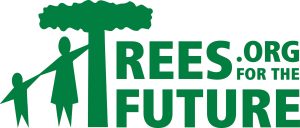Meet sustainably
At Meet we try and do the right thing around sustainable business practice. We are accredited by ECOsmart, we offset our flights carbon emissions and are a member of the Living Wage Foundation.
Furthermore Meet have committed to planting 10 trees through Trees for The Future for every meeting, event or conference we confirm on behalf of our clients. To date our clients have helped us plant over 10,000 trees.
How can you help?
If you are interested in making sustainable choices for your events, here are a few hints and tips:
Minimum requirements
– Reflection on the need to hold a physical meeting/event.
– Replacement of a meeting (if relevant/appropriate) by an audio/video conference or webinar, possibly supported by additional corporate solutions for collaboration.
Advanced options
– Use of a sustainable event management system (e.g. ISO 20121) or environmental management scheme (e.g. EMAS) internally or by suppliers/contractors.
Minimum requirements
– Easy access by public transport, bike/walking and availability of secure bike parking facilities
– Energy efficient building
– Waste collection and recycling system in place
– Additional ICT facilities available allowing virtual (remote) participation
– Limited customization of room needed: (a) Limited transportation necessary for equipment and persons and (b) Pre-set meeting room layout (rather than customized room, which implies use of additional resources)
Advanced options
– Venue with an environmental management system in place (e.g. EMAS)
Minimum requirements
– Use of on-line promotional tools (e.g. on-line registration, on-line communication material and resources)
– No use, or limited and optimised use, of printed promotional material (e.g. eco-friendly design & printing)
– Avoid and limit distribution of promotional gadgets and gifts (e.g. minimise the number and include eco-friendly criteria)
– Request the minimum office supplies, choose them recycled, rechargeable and made of natural material, collect them after the event for future use
– Re-use conference materials from past events for the same purpose (e.g. stands, general banners)
Advanced options
– Re-use conference materials from past events for different purpose (e.g. old banners turned into bags)
Minimum requirements
– Choose seasonal (and/or organic) food and drinks
– Offer a larger choice of plant-based food options
– Prevent food waste and avoid single-use items (e.g. use reusable cutlery and crockery, drinking water in jugs)
Advanced options
Advanced options
– Propose a full vegetarian or vegan menu, as well
– Give extra points in the selection procedure to certified caterers applying environmental management schemes (e.g. EMAS)
– Explore food donations of leftover food in collaboration with the catering sub-contractor (when possible).
Minimum requirements
– Choose seasonal (and/or organic) food and drinks
– Offer a larger choice of plant-based food options
– Prevent food waste and avoid single-use items (e.g. use reusable cutlery and crockery, drinking water in jugs)
Advanced options
– Propose a full vegetarian or vegan menu, as well
– Give extra points in the selection procedure to certified caterers applying environmental management schemes (e.g. EMAS)
– Explore food donations of leftover food in collaboration with the catering sub-contractor (when possible).
Minimum requirements
– Recommend accommodation close to the venue and easily accessible by public transport, walking and cycling
– Information on sustainable commuting provided to participants (e.g. maps, timetables)
– Recommend that participants use more sustainable modes of transport (e.g. train instead of air travel)
Advanced options
– Choose certified hotels that apply sustainable operations (e.g. Green Key, EU Ecolabel) or an environmental management system (e.g. EMAS)
– Recommend that participants compensate the GHG emissions from their travel
Minimum requirements
– Require companies to apply eco-friendly procedures when performing the contract, or to employ staff in a socially-conscious manner (e.g. complying with safety and labour rules, employing disadvantaged/long-term unemployed), even among sub-contractors (e.g. catering, accommodation)
Advanced options
– Select fair trade products (e.g. promotional material and gadgets)
Minimum requirements
– Communicate the sustainability of your event (e.g. involve participants and stakeholders, follow- up communication)
Advanced options
– Implement a sustainable event management system (e.g. ISO 20121) or environmental management schemes (e.g. EMAS), directly or via suppliers/sub-contractor

Facts and figures




Want to know more? Contact >>